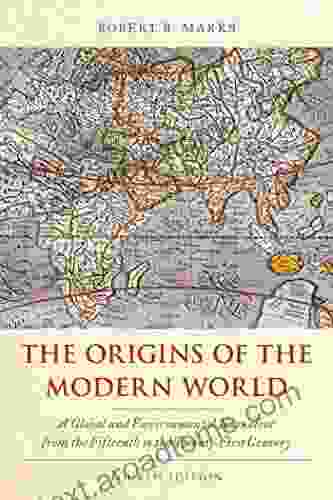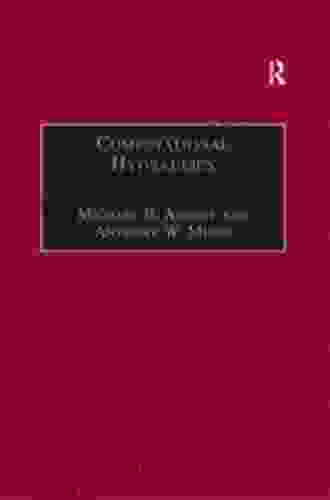Introduction to the Theories of Measurement and Meaningfulness: A Comprehensive Guide

Measurement is a fundamental tool for understanding the world around us. It allows us to quantify, compare, and analyze the characteristics of objects, events, and phenomena. But how do we know if our measurements are accurate, meaningful, and reliable? This is where the theories of measurement and meaningfulness come into play.
5 out of 5
| Language | : | English |
| File size | : | 9393 KB |
| Text-to-Speech | : | Enabled |
| Enhanced typesetting | : | Enabled |
| Word Wise | : | Enabled |
| Print length | : | 185 pages |
| Screen Reader | : | Supported |
The Nature of Measurement
Measurement is the process of assigning numbers to objects or events according to some rule. This rule, known as a measurement scale, defines the meaning of the numbers and the operations that can be performed on them.
There are four main types of measurement scales:
- Nominal scale: Assigns numbers to categories without any inherent Free Download or distance between them. For example, assigning numbers to different colors.
- Ordinal scale: Assigns numbers to categories with an inherent Free Download but without equal intervals between them. For example, assigning numbers to different levels of education.
- Interval scale: Assigns numbers to intervals with equal distances between them, but the zero point is arbitrary. For example, assigning numbers to temperature in Celsius or Fahrenheit.
- Ratio scale: Assigns numbers to intervals with equal distances between them and a true zero point. For example, assigning numbers to height or weight.
Theories of Measurement
There are two main theories of measurement that provide different perspectives on the nature and foundations of measurement:
- Classical test theory (CTT): Views measurement as a process of estimating true scores from observed scores. CTT assumes that there is a true score underlying every measurement and that observed scores are subject to measurement error.
- Item response theory (IRT): Views measurement as a process of modeling the relationship between item responses and latent traits. IRT assumes that individuals have different levels of ability on the latent trait being measured and that item difficulty affects the probability of a correct response.
Meaningfulness and Measurement
Meaningfulness is an essential aspect of measurement that goes beyond the assignment of numbers. It refers to the extent to which measurements accurately reflect the underlying concepts or attributes they are intended to measure.
There are several criteria for assessing the meaningfulness of measurements:
- Validity: The degree to which a measurement actually measures the concept or attribute it is intended to measure.
- Reliability: The consistency of a measurement over time and across different observers.
- Accuracy: The closeness of a measurement to the true value of the attribute being measured.
- Bias: The systematic over- or underestimation of a measurement due to factors unrelated to the attribute being measured.
Applications of Measurement Theory and Meaningfulness
The theories of measurement and meaningfulness have wide-ranging applications in various fields, including:
- Psychometrics: The development and validation of psychological tests and measures.
- Educational research: Assessing student achievement and evaluating educational interventions.
- Social research: Measuring social attitudes, behaviors, and outcomes.
- Business analytics: Analyzing customer satisfaction, market research, and financial performance.
- Quality control: Ensuring the accuracy and reliability of manufacturing processes and products.
The theories of measurement and meaningfulness provide a solid foundation for understanding the nature and foundations of measurement. By grasping these theories, researchers and practitioners can develop and use measurement tools that accurately and meaningfully capture the characteristics of the world around us. This knowledge is essential for making informed decisions, evaluating research findings, and advancing scientific and societal progress.
If you are interested in delving deeper into the fascinating world of measurement, I highly recommend the following resources:
- to the Theory of Measurement by S.S. Stevens
- Theories of Measurement by D.H. Krantz, R.D. Luce, P. Suppes, and A. Tversky
- Meaning in Measurement: A Structuralist Approach by P. Suppes and J. Zinnes
5 out of 5
| Language | : | English |
| File size | : | 9393 KB |
| Text-to-Speech | : | Enabled |
| Enhanced typesetting | : | Enabled |
| Word Wise | : | Enabled |
| Print length | : | 185 pages |
| Screen Reader | : | Supported |
Do you want to contribute by writing guest posts on this blog?
Please contact us and send us a resume of previous articles that you have written.
 Book
Book Novel
Novel Page
Page Chapter
Chapter Text
Text Story
Story Genre
Genre Reader
Reader Library
Library Paperback
Paperback E-book
E-book Magazine
Magazine Newspaper
Newspaper Paragraph
Paragraph Sentence
Sentence Bookmark
Bookmark Shelf
Shelf Glossary
Glossary Bibliography
Bibliography Foreword
Foreword Preface
Preface Synopsis
Synopsis Annotation
Annotation Footnote
Footnote Manuscript
Manuscript Scroll
Scroll Codex
Codex Tome
Tome Bestseller
Bestseller Classics
Classics Library card
Library card Narrative
Narrative Biography
Biography Autobiography
Autobiography Memoir
Memoir Reference
Reference Encyclopedia
Encyclopedia Matt Goss
Matt Goss Melanie Marie Shifflett Ridner
Melanie Marie Shifflett Ridner Michael S Kinch
Michael S Kinch William A Haviland
William A Haviland Matthew Sleeth
Matthew Sleeth Niti Krishnakumar
Niti Krishnakumar Robert Jervis
Robert Jervis Mark Weakland
Mark Weakland Usa Triathlon
Usa Triathlon Reginald Laubin
Reginald Laubin Wilma Carroll
Wilma Carroll Mark Deneen
Mark Deneen Martha B Straus
Martha B Straus Sonja Grace
Sonja Grace Matthew Dibenedetti
Matthew Dibenedetti Richard Rushfield
Richard Rushfield Yousuf Tahir Ali
Yousuf Tahir Ali Mark Wegman
Mark Wegman Martine Bloquiaux
Martine Bloquiaux Tamara A Johnson George
Tamara A Johnson George
Light bulbAdvertise smarter! Our strategic ad space ensures maximum exposure. Reserve your spot today!

 Chadwick PowellUnveiling the Geological Marvels of Namibia: A Journey with Michel Detay's...
Chadwick PowellUnveiling the Geological Marvels of Namibia: A Journey with Michel Detay's...
 Ernest HemingwayUnveiling the Secrets of the Holy Spirit: A Journey with Espiritus Sanctus by...
Ernest HemingwayUnveiling the Secrets of the Holy Spirit: A Journey with Espiritus Sanctus by... Timothy WardFollow ·4k
Timothy WardFollow ·4k Aron CoxFollow ·7.3k
Aron CoxFollow ·7.3k Elias MitchellFollow ·17.6k
Elias MitchellFollow ·17.6k Chris ColemanFollow ·4.5k
Chris ColemanFollow ·4.5k Clayton HayesFollow ·7.7k
Clayton HayesFollow ·7.7k Isaac AsimovFollow ·8.7k
Isaac AsimovFollow ·8.7k Edmund HayesFollow ·7k
Edmund HayesFollow ·7k Guillermo BlairFollow ·2.5k
Guillermo BlairFollow ·2.5k

 Ralph Ellison
Ralph EllisonIntelligent Video Surveillance Systems: The Ultimate...
In a world...

 Jeffrey Cox
Jeffrey CoxThe Origins of the Modern World: A Journey to the Roots...
Embark on an Extraordinary...

 Paulo Coelho
Paulo CoelhoUnlock the Power of Integrated Medical Imaging with...
In the rapidly evolving...

 Charles Reed
Charles ReedThe Christ of the Covenants: Unlocking the Mystery of...
Embark on a Profound...

 Elton Hayes
Elton HayesComputational Hydraulics: A Comprehensive Guide for...
In the realm of fluid dynamics,...
5 out of 5
| Language | : | English |
| File size | : | 9393 KB |
| Text-to-Speech | : | Enabled |
| Enhanced typesetting | : | Enabled |
| Word Wise | : | Enabled |
| Print length | : | 185 pages |
| Screen Reader | : | Supported |










